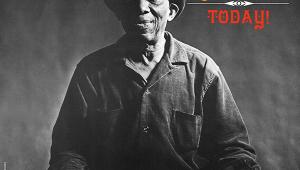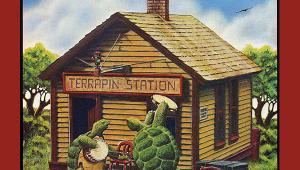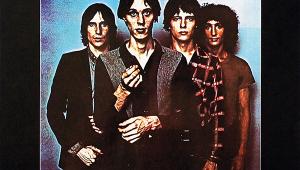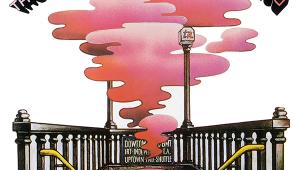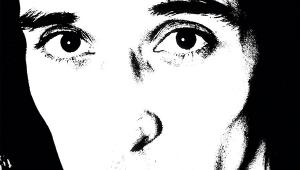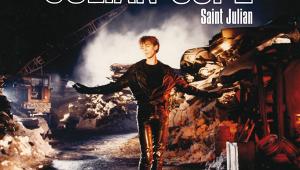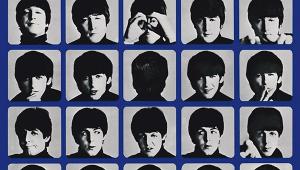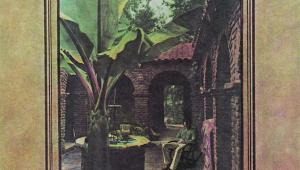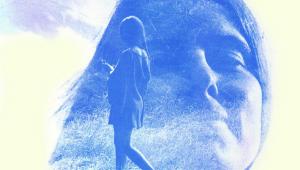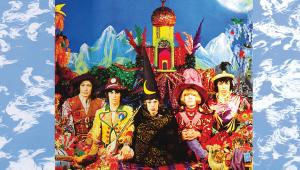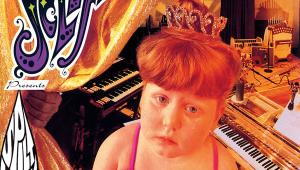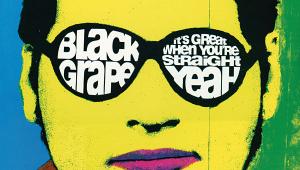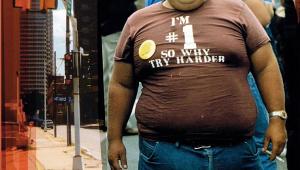Hawkwind: Hawkwind Page 2
Huw Lloyd Langton, a young lead guitarist who can't handle the band's heavy drug intake and kind of freaks out, leaving the group as soon as the album is finished.
A solid rhythm section comprising John Harrison on bass guitar and Terry Ollis on drums. Michael Davies aka Dik Mik, some kind of mad genius who likes nothing better than to make weird electronic noises on a number of Heath Robinson-esque instruments. Dick Taylor, an extremely proficient lead guitarist who has been in an early incarnation of The Rolling Stones and has just quit The Pretty Things, and done a brief tour with the 'Wind with a view to producing the aforementioned album.
And what this rather unlikely mob end up doing is inventing space rock. Oh, and punk. Sort of simultaneously. Unlike anything recorded before or since, Hawkwind's self-titled debut album, pieced together in Trident Studios in April, 1970, is a strange beast, to put it mildly. The band, such as they were, are an undisciplined bunch, never happier than when engaged in a live jam session, which would last as long as their energies allowed and the drugs didn't wear off.
Fuelled on acid and pot, they made no secret of their ambitions, as stated on the back of the album's gatefold: a trippy painting full of dragons and faux-marijuana leaves created by a bloke called Arthur Rhodes. 'This is the beginning,' it read. 'By now we will be past this album. We started out trying to freak people (trippers), now we are trying to levitate their minds, in a nice way, without acid, and with ultimately a completely audio-visual thing. Using a complex of electronics, lights and environmental experiences.'
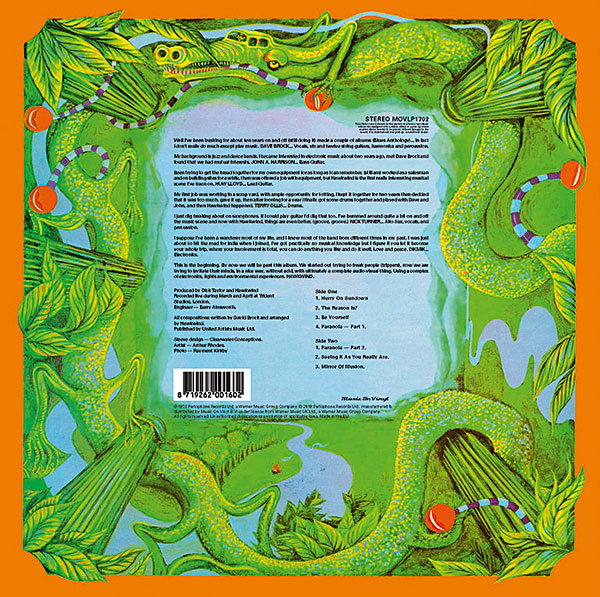
Walking On Sunshine
What actually happened was that, try as he might, Dick Taylor couldn't get anything decent out of the band under any sort of studio-disciplined circumstances so he eventually gave up and just had them play through their set three or four times as they would have done if live on tour. The 40-minute improvisation, known loosely as 'The Sunshine Special' was then diced up into individual tracks from the best takes – 'The Reason Is?, 'Be Yourself', 'Paranoia Part 1', 'Paranoia Part 2', and 'Seeing It As You Really Are', book-ended by a couple of great Brock acoustic buskers, 'Hurry On Sundown' and 'Mirror Of Illusion'.
Imagination reigns over technique, there's a DIY attitude uncowed by the lack of technical ability, a can-do-will-do, what-the-hell-willingness to take stuff further and further out in a truly collective pulse. The band, with its revolving door membership save for Brock, who was their rock of foundation, would muscle-up in the future and bring more focus but, great as the later albums, In Search Of Space and Space Ritual, etc, are, they lack the sheer charm of the 1970 debut.
For some it sounds 'unremarkable… repetitive… self-indulgent… lengthy…' Such criticisms were brushed aside by Nik Turner who later complained that (on the contrary) 'A lot of the cuts were much longer when we did them originally… the cuts were about 15 or 20 minutes each, then they got edited down to seven'.
'This was the band,' added Brock with typical honesty. 'It wasn't pretentious or over-produced. It was just… us.' Oh, and Johnny Rotten was a fan.
Re-Release Verdict
Produced by guitarist Dick Taylor at Trident Studios in London, the band's eponymous debut album Hawkwind was released in the UK and Europe in 1970 as a Liberty label gatefold album [LBS 83348], and in the States one year later by United Artists. Our 180g vinyl reissue comes from the Netherlands-based label Music On Vinyl and is also presented in a gatefold sleeve, with the original fantasy artwork [MOVLP1702]. The side-break, incidentally, divides the two halves of 'Paranoia'. Our copy was a high quality, flat pressing. HFN

